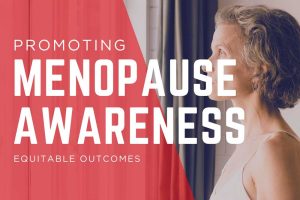What is menopause?
Menopause marks a natural stage in a woman’s life when the menstrual cycle comes to an end. It is not an illness, but a transition that every woman will experience at some point, typically between the ages of 45 and 55. You might think of it as a purely medical or personal event, but in recent times menopause has become an increasingly important topic in occupational health. Conversations about it are no longer confined to doctors’ surgeries or private homes. They are happening in boardrooms, on shop floors and in HR offices. This shift matters because menopause can affect your wellbeing at work, not because of any lack of commitment, but because of the very real physical and psychological changes it brings.
Understanding the signs of menopause
The experience of menopause varies widely, which is one reason it can be difficult for managers and colleagues to recognise. Some people pass through it with few symptoms, while others find it significantly affects their day-to-day life. The hormonal changes that underpin menopause can produce hot flushes, night sweats, headaches, joint pain, fatigue and changes in weight. These are not minor inconveniences but can be persistent and disruptive. At the same time, psychological effects can be just as challenging, particularly in high-pressure or customer-facing roles. From a workplace perspective, this means someone who has always been reliable and energetic may suddenly seem less focused or more absent. Without awareness, such changes can be misinterpreted as poor performance or lack of motivation.
Approaches and treatments
Menopause is a natural biological process rather than a disease, so the goal of treatment is usually to alleviate symptoms rather than to “cure” it. Hormone replacement therapy (HRT) remains one of the most widely used approaches, replenishing declining levels of oestrogen and sometimes progesterone. There are also non-hormonal medications that can help with specific issues such as sleep problems or anxiety. Beyond prescriptions, lifestyle measures can make a considerable difference. Regular exercise, a balanced diet, good sleep habits and reducing alcohol or caffeine are frequently recommended. Some people find relief in mindfulness, or support groups where they can share experiences. These measures can complement each other, but what works for one person may not work for another. This is why individualised medical advice and open discussion with healthcare professionals are so important.
How employers can support workers going through menopause
For employers, acknowledging menopause is not simply a matter of compliance or box-ticking. It is an opportunity to create a healthier, more inclusive workplace culture. Flexibility is often key. Adjusting shift patterns, allowing for more frequent breaks or offering remote work options can help employees manage symptoms without sacrificing their career. Providing a comfortable work environment may seem like a small measure but can have a big impact on someone’s wellbeing. Training managers to recognise the impact of menopause and to have sensitive conversations can also shift organisational culture. Employees are far more likely to disclose difficulties when they feel their concerns will be met with understanding rather than embarrassment. Some organisations now have formal menopause policies outlining available adjustments, support networks and signposting to occupational health services
How employees can support themselves and each other
From an employee’s perspective, self-care during menopause is as much about communication as it is about lifestyle. Speaking openly with a GP or occupational health adviser can open doors to treatments or adjustments that make a genuine difference. Keeping a diary of symptoms can also help when discussing issues with managers or healthcare providers. Equally important is peer support. In workplaces where menopause remains a taboo topic, women can feel isolated, as if they are the only one going through it. Informal networks, support groups or simply talking to trusted colleagues can counter that isolation and normalise the experience. Employees who are not personally experiencing menopause can also play a role by educating themselves, showing empathy and challenging stigma when they encounter it.
Final thoughts
Menopause is still too often misunderstood, particularly in the workplace. By talking about it, planning for it and treating it with empathy, organisations can ensure that this natural process does not become an unnecessary barrier to employee’s wellbeing or career progression. Together we can create more equitable workplaces. Learn more about what we do at https://mohs.co.uk/


